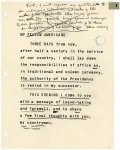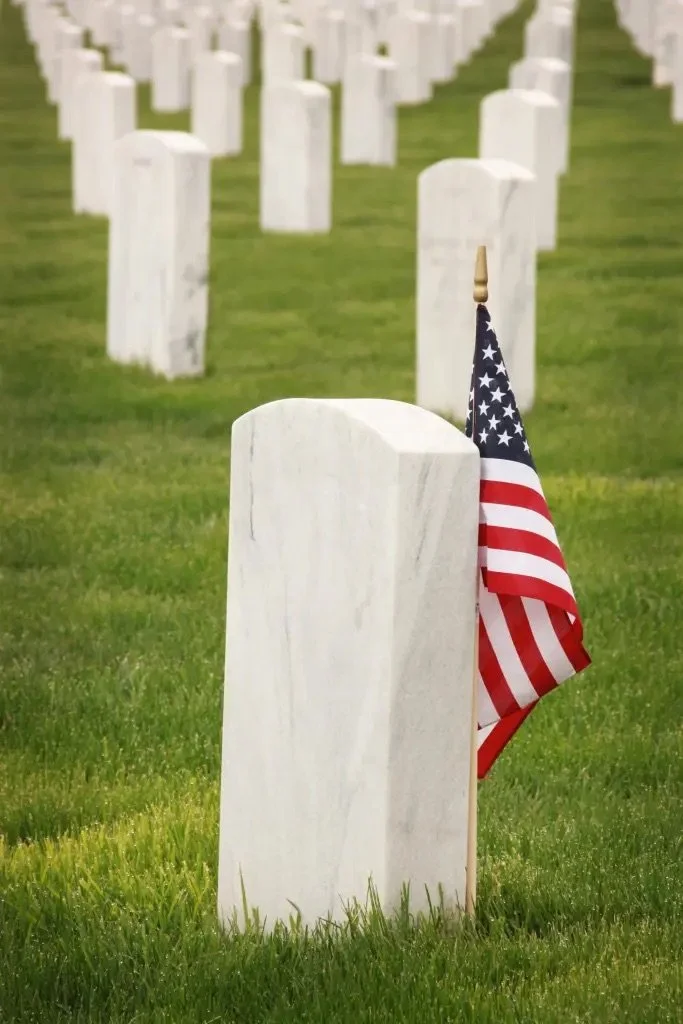More Thoughts on the Flag
Last week I discussed the importance of symbols in political life, and of the flag in particular.
On the 150th Anniversary of His Birth: A Celebration of G. K. Chesterton
At the end of last month, on May 29, lovers of literature celebrated the 150th anniversary of the birth of G. K. Chesterton, one of the greatest and most influential writers of the twentieth century.
Remembering Dwight David Eisenhower, Part 2: The Presidential Years
Dwight David Eisenhower was known as a man of dispassionate and independent judgment.
The Strange Place of the Pledge of Allegiance
In 1988, Michael Dukakis, the Democrat’s nominee for president, faced a crisis.
Symbols and American Politics
Tomorrow, June 14th, is Flag Day. It commemorates the adoption of the flag of the United States by the Second Continental Congress in 1777.
Eisenhower's Farewell Address
We’ve argued repeatedly in this space that part of Washington’s greatness as president was his willingness to walk away from power, even in circumstances where the opportunity to expand power was handed to him.
On Courage
In my essay last week I talked about my ambivalent reaction to the movie Saving Private Ryan. Although visually powerful, I found the story full of holes and the overall moral framework poorly constructed.
Remembering Dwight David Eisenhower on D-Day*
June 6, 2024 marks the eightieth anniversary of the most important military operation in American history.
Lincoln and the Commemoration of War
Presidents are largely defined by how they deal with crises, and no president had to deal with a greater crisis than did Abraham Lincoln.
Public Service Requires Sacrifice
My family has a long history of public service. Several family members, including my dad, served in the U.S Army during World War II and the Korean War.
The Art of War
On this Memorial Day we take some time to reflect on books and movies that can help us better understand the experiences of soldiers at war.
In Defense of Private Property and Tradition
Rousseau’s seemingly optimistic theory that man is good in nature (the “noble savage”) but is corrupted by private property and by traditional social, political, and ecclesiastical institutions proved disastrous, leading to the irrational and deadly utopianism of the French Revolution.
Stuck in the Middle With You
Being in the middle has a bad reputation. Middle children often seem willful and resentful.
The Caretaker President
Ever since Ford pardoned Nixon, the perspective of the press and the nation changed.
In Search of Ordinary Patriotism
We are winding toward a season in America in which our thoughts about our country must come to bear upon our decisions, and we must, whatever our convictions about modern democracy, consider how we should best use our constitutional rights.
John Marshall Part II
Last week we introduced readers to John Marshall, one of the most consequential and least-known members of the founding generation.
The Land Where Decency Comes From
When we think of the United States, we see it as a patchwork of regions, states, and communities.
John Marshall Part I
Many Americans know the names of Washington and Jefferson and could probably tell you a thing or two about that person but display little to no familiarity with a figure who rightfully claims a place alongside them as an important figure of the so-called founding generation: John Marshall.
On Smugness
“When fascism comes to America it will be wrapped in a flag and carrying a cross,” Sinclair Lewis probably never said.
The Surprising Origins of America's Elite Class
Former NPR business editor Uri Berliner earned extensive conservative accolades for his recent essay besmirching the federally-funded media organization for what he described as a newsroom increasingly biased in favor of the woke tenets of the Democratic Party.





















